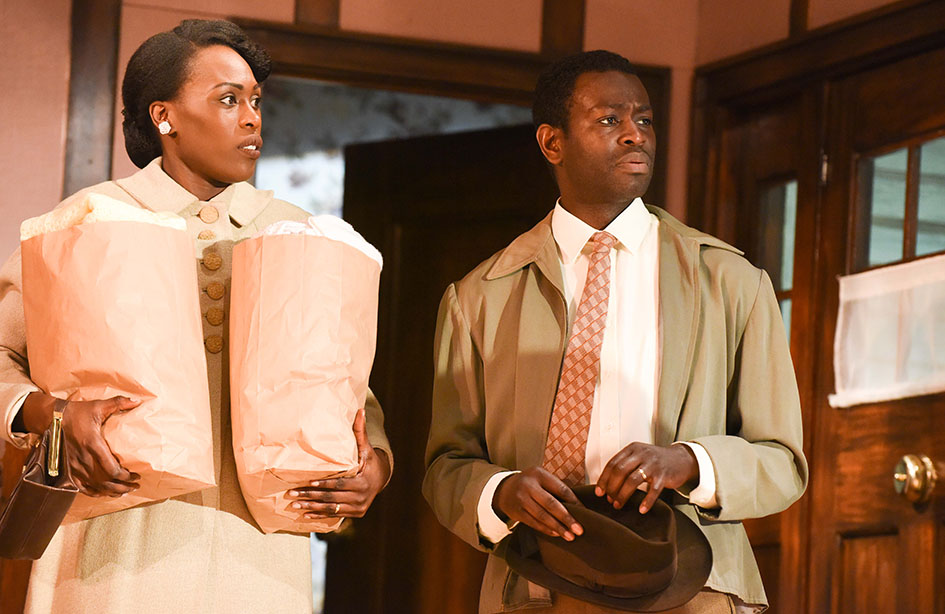The star of Clybourne Park tells Edition why the award-winning play is so relevant today
Clybourne Park is a razor-sharp satire that lifts the lid on race and real estate in a fictional Chicago neighbourhood. The swinging sixties are just around the corner, as a black family move into a suburban white enclave, triggering all too predictable mutterings from the neighbours.
Set in the late 50s and 2009, one ensemble of actors play two sets of characters in Bruce Norris’s satire that has won multiple awards on both sides of the Atlantic, including Best Play at the Tony Awards and the Olivier Awards.
Gloria Onitiri – pictured above – stars in the play and Edition caught up with her before the run at Cambridge Arts Theatre from 9 to 14 May.
What can you tell us about Clybourne Park?
Bruce Norris had written a master of a piece that makes you laugh and feel uncomfortable at the same time. A winning combo in my book! It’s set in two different time periods the 1950’s and 2009 in Chicago. Not only demonstrating similarities in the nature of dynamics between different ethnic groups in both times but also a heart-breaking tale about a couple suffering a deep loss. There’s so much to love about this play.
What attracted you to be a part of Clybourne Park?
The boldness of the writing. It’s not very often that you read a play where the dialogue is so vibrant that it jumps right off the page. It’s so funny and shocking in so many ways. Norris isn’t afraid to upset people and challenge you with his ideas. I like that….a lot!
Tell us about the audition process?
I was sent a few scenes to look at for the two characters that I’m playing. A lot of time was spent laughing and discussing our feelings about the play and how it relates to us.
Is Clybourne Park particularly relevant at the moment?
Yes! Totally! Race and real estate is just an issue that will sadly never go away. I think Bruce Norris has written something that is socially relevant and universal. It’s such a taboo conversation to have, and he reminds us that we are not so different now to those before us 50 years ago. It’s complicated. What can we say? What can’t we? And who gets left behind when we develop and gentrify communities. Young couples trying to build futures for them and their new families? Totally relevant!
What can you tell us about your two characters? How easy is it to switch from one to another?
Francine is interesting because she’s a maid in the 1950’s living in America. As an African American woman of that time where black people were still in a position of disempowerment, there are things that she may be thinking but not permitted to say. However in Act Two, it’s post-Obama, post-Oprah so there’s much more room for the thoughts of a black woman, to a certain extent.
“There are things that she may be thinking, but not permitted to say”
The transformation from a subservient maid into an educated, informed confident and passionate Lena in Act Two is a joy to play. As an actor I get to explore right through my range. It’s actually not that bad switching between the two. Because the two acts are based in different periods and the styles of writing and form are so different it almost feels like you’re doing two plays in one.
How important is touring theatre?
Not everyone can get to London to see theatre. And I believe part of our job is to take theatre to the people as well as make them come to us.
What are your likes and dislikes about touring?
I love moving to different theatres and the challenges you get from venue to venue. Acoustics, size of stage, number of seats in an auditorium. It keeps you on your toes!
What makes Clybourne Park a must-see production?
It’s vibrant, fast, emotional, funny and challenging! Everything you need in a show!

